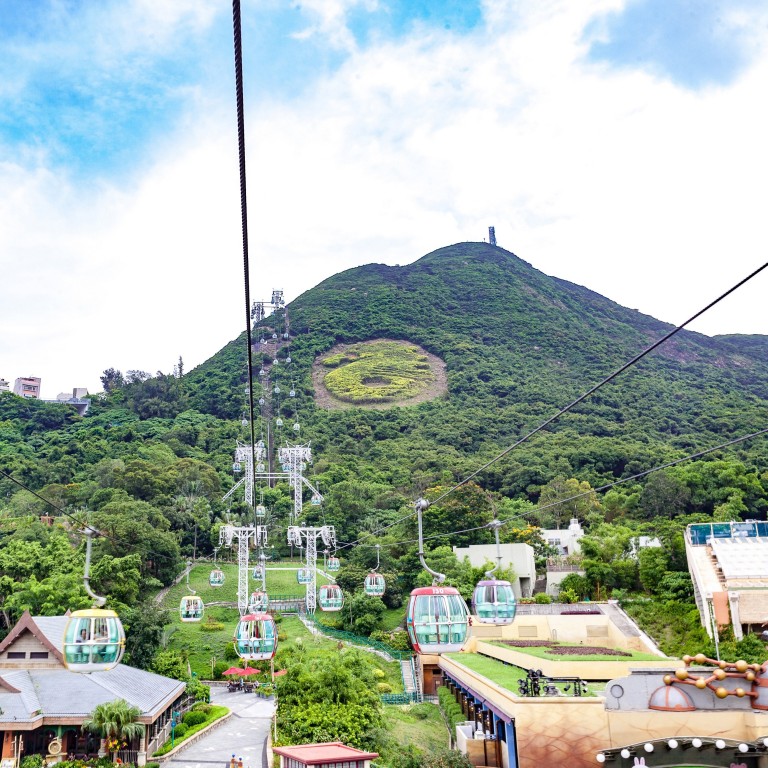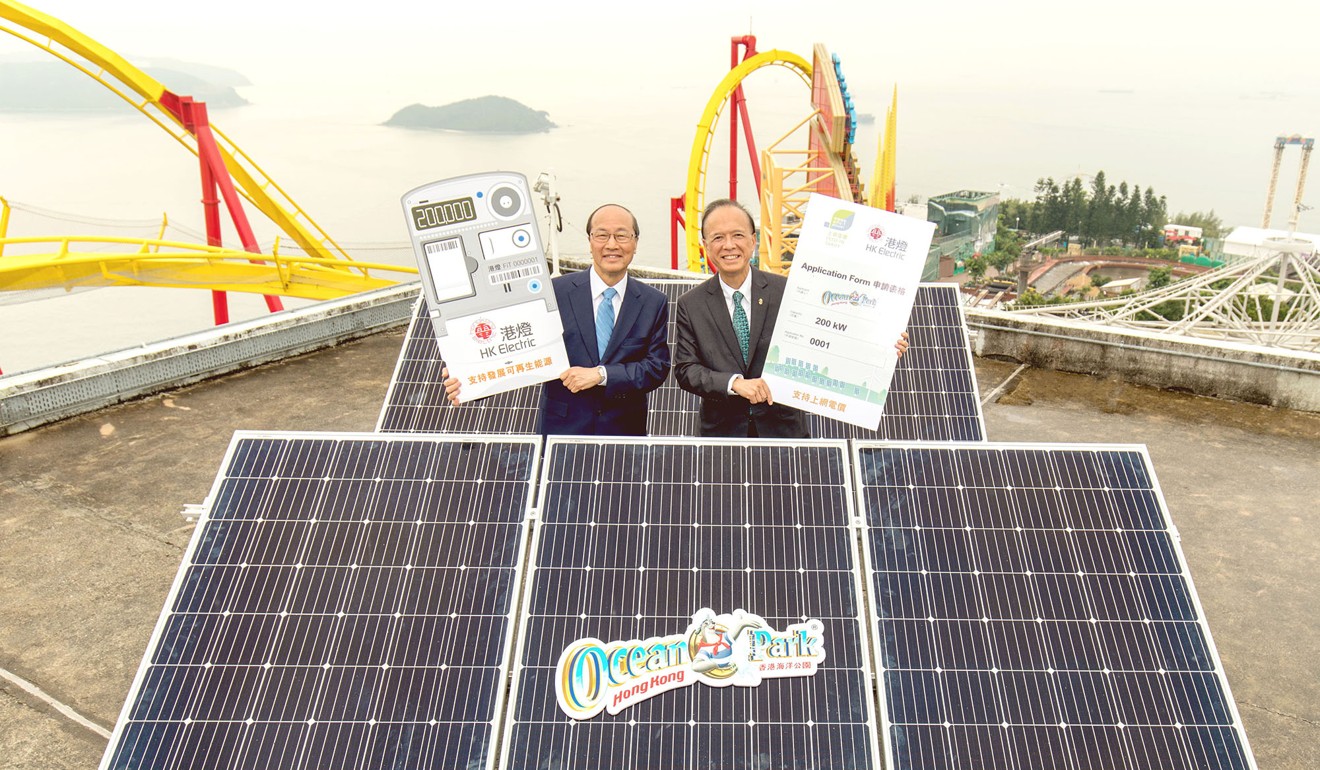
Hong Kong’s Ocean Park will treble solar power capacity by 2020 to reduce carbon footprint and tackle climate change
- Entertainment resort plans to treble solar power capacity by 2020
- The power will be sold to HK Electric to encourage use of renewable energy across city
Hong Kong’s entertainment resort Ocean Park has vowed to tackle climate change by trebling its solar energy generation capacity by 2020, but a green group has called for even more to be done.
The resort in Southern District will install a solar power system of about 460 kilowatt-peak (kWp) or 460,000 kilowatt-hours (kWh).
Built on the rooftop of popular attraction Polar Adventure, the solar system generates about 200 kWp or 200,000 kWh of electricity annually, equivalent to the annual electricity consumption of 50 four-person households.
Following the new installation, the park would be able to generate about 660 kWp or 660,000 kWh of solar power a year.
The electricity would be sold to HK Electric as part of a feed-in tariff scheme introduced by the government in 2018 to encourage the use of renewable energy for domestic and commercial purposes.
The project was expected to begin in the fourth quarter of 2019 and be completed by the end of 2020.

“Ocean Park strives to achieve sustainable development. Through the park’s industry-leading carbon footprint reduction plan, we are committed to optimising energy efficiency of all facilities to achieve energy savings,” said Matthias Li Sing-chung, chief executive of the resort.
“The park will continue to reduce its carbon footprint through various initiatives and create a world-class, eco-friendly theme park experience.”
He added the park had completed its 10-year carbon reduction targets four years ahead of schedule in the 2017/18 financial year.
The target, set in 2012, has already reduced absolute carbon emissions by 10 per cent. It introduced the clean solar energy project last August at a cost of HK$3 million.

However, Angus Wong, the head of Policy Advocacy and Campaign at World Green Organisation – an independent environmental NGO – said more could be done to increase the park’s sustainability efforts.
“I look forward to seeing Ocean Park set up another reduction target for the next decade, having reviewed the achievement in the last six years,” he said.
“It will be even better if the new target can be more stringent. [For example, setting targets of] more than 10 per cent.”

